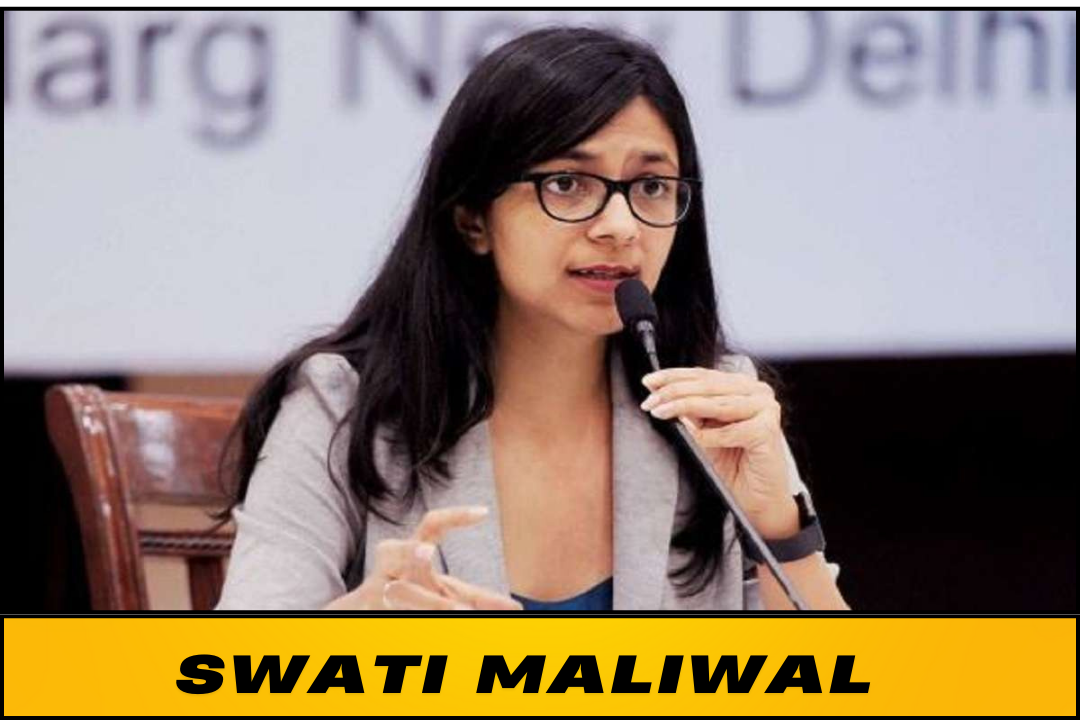Swati Maliwal, a prominent Indian social activist and politician, has been a relentless advocate for women’s rights and safety.
Early Life and Education
Born on October 15, 1984, in Ghaziabad, Uttar Pradesh, Swati Maliwal’s early life was marked by personal challenges. She completed her schooling at Amity International School, Noida, and pursued a Bachelor’s degree in Information Technology from JSS Academy of Technical Education. Despite a promising career in the tech industry, Maliwal chose to dedicate her life to social activism, focusing on women’s empowerment and safety.
Journey into Activism
Maliwal’s foray into activism began with her involvement in the 2011 Indian anti-corruption movement led by Anna Hazare. This movement ignited her passion for social justice and laid the foundation for her future endeavors. She later joined the Aam Aadmi Party (AAP) and served as an advisor to the Chief Minister of Delhi on public grievances, where she worked tirelessly to address issues affecting the common citizen.
Leadership at the Delhi Commission for Women (DCW)
In July 2015, Swati Maliwal was appointed as the Chairperson of the Delhi Commission for Women. Under her leadership, the DCW underwent a significant transformation, becoming a proactive body addressing women’s issues in the capital. During her tenure, the commission handled over 170,000 complaints related to rape, dowry violence, “honour” killings, and trafficking—a more than eightfold increase compared to previous years. The DCW’s helpline also saw a substantial rise in calls, receiving up to 4,000 daily, supported by an expanded team of over 100 counsellors.
Advocacy and Reforms
Maliwal’s tenure at the DCW was marked by bold initiatives and unwavering advocacy for women’s rights. She undertook hunger strikes demanding stricter laws and swift justice for rape survivors, leading to increased sentencing for offenders. Her efforts also contributed to the amendment of the Juvenile Justice Act in December 2015, allowing minors aged 16-18 to be tried as adults in cases of heinous crimes. Additionally, she led raids on brothels, rescuing numerous women and girls from trafficking and providing them with vocational training.
Transition to National Politics
In January 2024, after serving two terms at the DCW, Maliwal transitioned to national politics, becoming a Member of Parliament in the Rajya Sabha representing Delhi. This move allowed her to amplify her advocacy for women’s rights on a larger scale. In her new role, she continues to champion issues such as gender-based violence, women’s safety, and systemic reforms to ensure justice for survivors.
Challenges and Controversies
Throughout her career, Maliwal has faced numerous challenges, including threats and criticisms. In May 2024, she alleged assault by a close aide of then Delhi Chief Minister Arvind Kejriwal at the Chief Minister’s residence. The incident led to legal proceedings and highlighted the risks faced by women activists in India. Despite these challenges, Maliwal remains steadfast in her commitment to justice and equality.
Achievements and Recognition
Swati Maliwal’s relentless efforts have earned her recognition and accolades. In March 2023, she was honored with the DNA Women Achievers Award in the Politics category for her significant contributions to women’s empowerment. Her leadership has not only transformed the DCW but also set a benchmark for women’s commissions across India.
Key Milestones in Swati Maliwal’s Career
| Year | Milestone |
|---|---|
| 2011 | Participated in Anna Hazare’s anti-corruption movement |
| 2015 | Appointed as Chairperson of the Delhi Commission for Women |
| 2018 | Undertook hunger strike leading to stricter laws against child rapists |
| 2024 | Elected as Member of Parliament, Rajya Sabha representing Delhi |
Conclusion
Swati Maliwal’s journey from a tech graduate to a prominent social activist and politician exemplifies her unwavering dedication to women’s rights and social justice. Her transformative work at the Delhi Commission for Women and her continued advocacy in the Rajya Sabha underscore her commitment to creating a safer and more equitable society for women in India.






